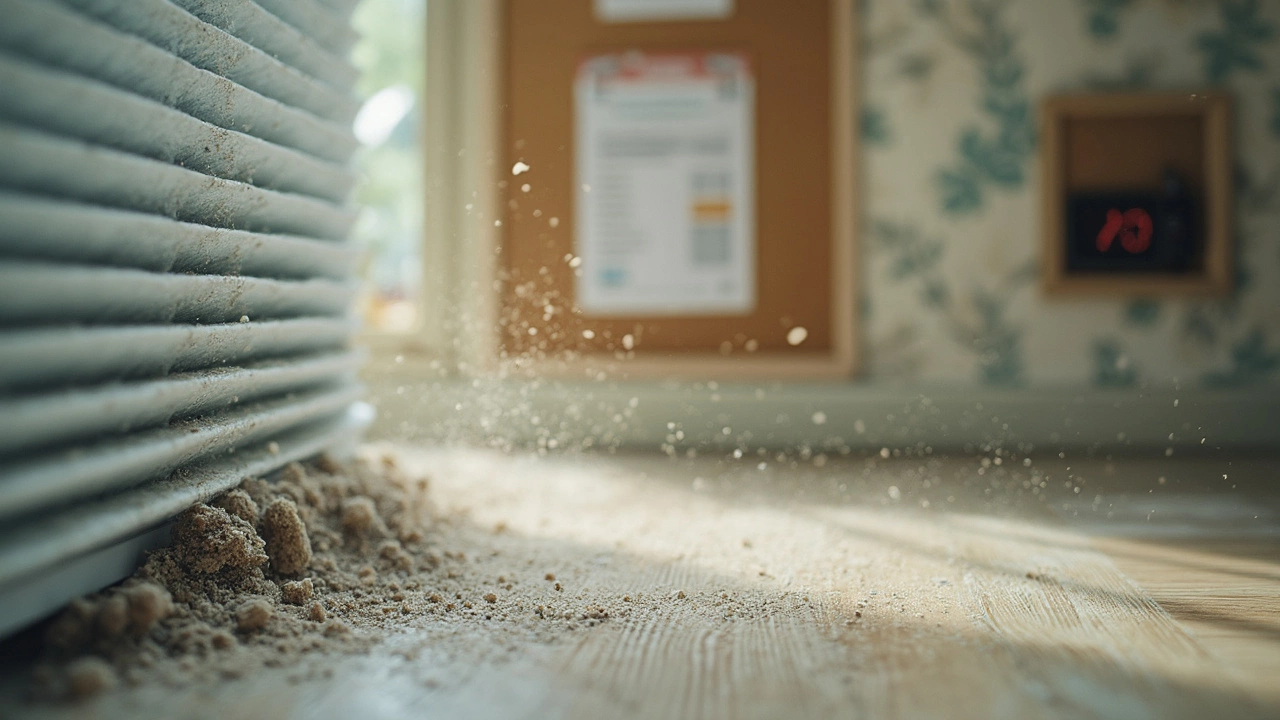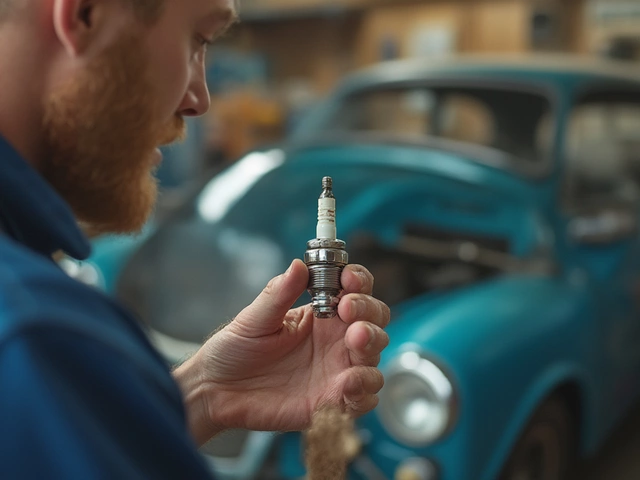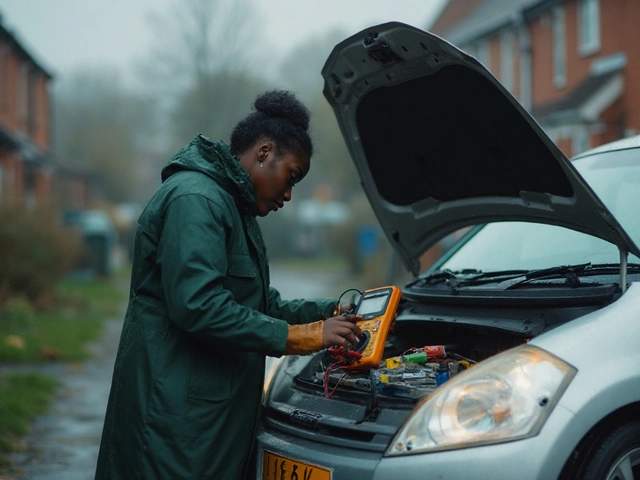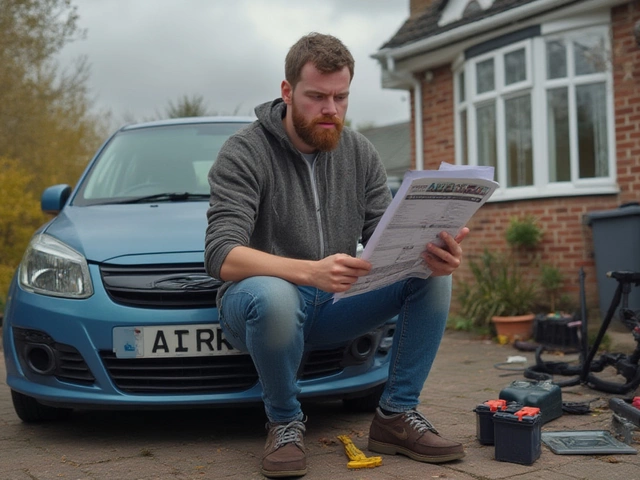Most folks don't think twice about their air filter—until weird smells creep in or the dust seems endless. Thing is, your air filter isn’t just a background part; it quietly works to grab dust, pollen, and gunk that would otherwise end up in your lungs or all over your home. Once it's stuffed full and clogged, it’s basically useless.
If you let your air filter go untouched, dirt and other stuff can’t get trapped like they’re supposed to. Instead, that junk gets pushed around your rooms and sucked deep into your HVAC system. It’s like running a marathon with a breathing mask full of mud. Everything strains to work, breaks down faster, and your rooms just don’t smell or feel as fresh.
- What Your Air Filter Actually Does
- The Messy Consequences of Ignoring It
- How It Hits Your Energy Bills
- Health Effects Nobody Tells You About
- Easy Ways to Stay on Top of Cleaning
- Signs It's Time for a Change
What Your Air Filter Actually Does
Your air filter is like security at the front door, only instead of keeping out rowdy guests, it grabs all the crud floating through your air. We're talking dust, pollen, pet dander, and even mold spores. This isn't just for show—if you're skipping air filter maintenance, all that stuff hangs around and you end up breathing it in. Not fun for anyone who deals with allergies or asthma.
Air filters play a bigger role than most people think. They’re not just making things smell better—they actually protect your heating and cooling systems. If dirt and debris get sucked into your HVAC, it's only a matter of time before the machine gets jammed, overheats, or needs a serious (and expensive) fix.
"A clogged filter makes your HVAC system work up to 15% harder, which shortens its life and wastes energy." – U.S. Department of Energy
Here’s what happens in real numbers. A typical home has around 40 pounds of dust floating in every year. If the filter isn’t working, a lot of that gets inside vents or recirculates through bedrooms and living spaces.
| Contaminant | Estimated Reduction with Clean Filter |
|---|---|
| Dust | Up to 90% |
| Pollen | About 80% |
| Mold Spores | Up to 70% |
| Pet Dander | Up to 66% |
Bottom line: a air filter that's clean and working stops all that stuff before it messes with your air or your equipment. Keep it in decent shape and you’re already ahead of most homeowners.
The Messy Consequences of Ignoring It
So what really happens if you skip cleaning your air filter? The short answer: nothing good. When you let dust and junk pile up, airflow drops fast. That makes your HVAC system work overtime—and honestly, machines are like people; the harder you push them, the sooner they break.
A clogged filter doesn’t just make your system sweat, it spreads grime around your house. Dust particles and allergens sneak right through, landing on your furniture, floors, and even your food. The EPA says indoor air can be two to five times dirtier than outdoor air if you’re dealing with bad filtration. You’ll probably notice a sticky, musty smell or even see more dust collecting around.
- Air conditioners and furnaces get choked. They end up using up to 15% more energy just to keep temps comfortable.
- Allergens like pollen, pet dander, and mold spores keep floating around. Bad for anyone with allergies or asthma.
- You might start spotting more dust mites or even mold in damp areas since the filter isn’t trapping moisture as well.
And money-wise? You take a direct hit. According to the Department of Energy, a dirty filter could spike your utility bill by $5 to $15 a month. If it gets bad enough, a clogged filter can cause parts to fail, grabbing you with a big repair bill (or worst case, a whole new unit).
| Consequence | Real-World Impact |
|---|---|
| Energy spike | Up to 15% higher bills |
| System lifespan | Clogged filters can cut HVAC life by 5-10 years |
| Indoor air | 2-5x dirtier than outdoor air |
| Repairs | Increased risk of breakdowns and costly repairs |
If you’re hoping all this will just «work itself out,» it doesn’t. Ignoring your air filter is a surefire way to get stuck with more dust, higher bills, and a system ready to quit way before its time.
How It Hits Your Energy Bills
Ignoring your air filter doesn’t just mess with your comfort—it can hit your wallet hard every month. When your filter gets packed with dust and debris, your HVAC system has to work extra to pull air through. This means your furnace or AC runs longer to get the same result, and the extra work means more electricity or gas gets used up.
According to the Department of Energy, replacing or cleaning a dirty filter can lower your AC’s energy use by up to 15%. That might seem small, but over a year, it really adds up, especially when you consider the cost of running your system during summer heatwaves or winter chills.
| Filter Status | Energy Use Increase (%) |
|---|---|
| Clean | 0 |
| Slightly Dirty | 5-10 |
| Very Clogged | Up to 15 |
This extra load can also shorten the life of your system, which isn’t cheap to fix or replace. Think about the strong keyword—air filter—as one of the simplest things you can check to dodge these extra costs. A quick swap or cleaning keeps your bills down and your gear working like it should.
- Check your filter every 30 days, especially if you have pets.
- Mark filter changes on your calendar so you don’t forget.
- If you notice bigger bills out of nowhere, check that filter first before blaming your HVAC.

Health Effects Nobody Tells You About
Skipping air filter cleaning isn’t just about having a dusty house—it can really mess with your health, even if you don’t notice it at first. When your filter is clogged, stuff like pollen, mold spores, and pet dander can breeze right past it. If you or anyone in your home deals with allergies, asthma, or other breathing problems, a dirty filter turns your place into a nightmare for lungs.
Researchers have found a direct link between dirty filters and more frequent asthma flare-ups, coughs, and sneezing fits. In some cases, folks even report more headaches and trouble sleeping because, honestly, who sleeps well when they’re sniffling all night?
- Air filter neglect pushes pollutants back into your living space instead of catching them.
- Mold and bacteria can grow on a dirty filter, so you might be breathing in way more than just dust.
- Long-term exposure can raise your risk of getting colds, sinus infections, and other airway issues.
Kids and older adults get hit even harder by this kind of indoor pollution since their lungs are more sensitive. According to the EPA, indoor air can be up to five times dirtier than outdoor air if you’re cycling it through a junked-up filter.
| Problem | Risk Increase With Dirty Filter |
|---|---|
| Allergies | 30% higher risk |
| Asthma Attacks | Up to 40% more frequent |
| Respiratory Infections | Approx. 20% increase |
So if you’re feeling stuffier at home, or if you notice the kids getting sick more often, it’s worth taking a look at that filter. Sometimes it’s the small home habits that make the biggest difference in how you feel every day.
Easy Ways to Stay on Top of Cleaning
The secret to making your air filter last and your air stay clean? Routine and reminders. It’s not as hard as it sounds. Once you turn it into a habit, your home and wallet both feel the difference.
First, pick a schedule. For most homes, swapping or cleaning out your air filter every 1-3 months keeps things running smooth. If you’ve got pets, allergies, or you smoke indoors, monthly checks can save you a lot of trouble. If you live in a city with tons of dust or pollen, step up your game, too.
- Set a recurring reminder on your phone—sync it with rent or bill due dates, so you never forget.
- Keep a pack of fresh filters on hand. Bulk buying usually saves cash, and you won’t put off the job just because you ran out.
- Mark filter size and brand on your filter cover with a sticky note or marker. Saves you the guesswork at the hardware store.
Now, how do you actually clean it? If it’s a disposable filter, just toss and replace. Reusable filters usually just need a good vacuum and a rinse with lukewarm water. Make sure it’s bone dry before popping it back in—damp filters get moldy, fast.
| Home Type | Suggested Change Interval |
|---|---|
| Standard Home (no pets, no allergies) | Every 90 days |
| Home with one pet | Every 60 days |
| Home with multiple pets | Every 30-45 days |
| Allergy or asthma sufferers | Every 20-45 days |
| Homes in high-dust areas | Every 30-60 days |
Don’t ignore those weird whirring HVAC noises or sudden hikes in your utility bill—that usually means your filter’s choked up. A blocked filter can increase your energy use by up to 15%, so staying on top of it isn’t just good for your health, it’s good for your budget too.
Signs It's Time for a Change
Knowing when to swap out or clean your air filter isn’t guesswork—there are clear signs you shouldn’t ignore. If you spot any of these, your filter is way past its best days.
- Air filter is visibly dirty or clogged. A dusty, gray, or brown sheet means it’s stuffed with junk. Shine a flashlight through it: If hardly any light gets through, it’s time.
- Your HVAC system kicks on more often or seems louder. That’s because it’s working overtime to push air through a blocked filter.
- There’s more dust and dirt settling on your surfaces—even after you clean.
- You’re sneezing, coughing, or having more allergy issues inside your house. Polluted air might be circulating thanks to a spent filter.
- Your energy bills jump without much change in weather. A clogged filter means your system is burning more power and costing you extra.
- Weird smells coming from vents, especially musty or burnt smells. This is a warning sign of trapped debris or even mold.
If you like hard numbers, here’s what the pros suggest. The rule of thumb for most homes:
| Filter Type | Recommended Change |
|---|---|
| Basic Fiberglass | Every 30 days |
| Pleated Filters | Every 60–90 days |
| High-Efficiency Filters | Every 6–12 months |
Keep in mind—pets, smokers, or living in a dusty area will mean you need to check your filter even more often. If you spot any of these signs or can’t remember when you last swapped the filter, it’s probably overdue.






